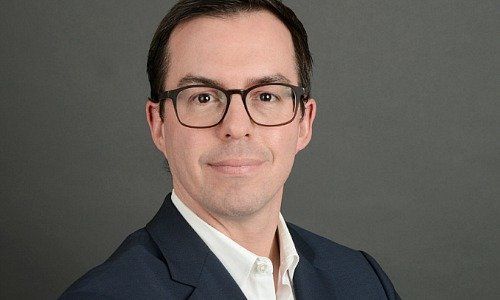Tobias Reichmuth is one of the new generation of Swiss financial entrepreneurs. In an interview with finews.com, he explains how he came to take an interest in sustainability and why he profits from the negative interest rate regime in Switzerland.
The debate about our climate has gathered pace recently and affected elections on a regional level in Switzerland. What about demand at Susi Partners, was it affected too?
Yes, it was. But not just over the past six months, but for about 18 months already – we see a substantially stronger interest in sustainable investments. We are at the right place at the right time.
Swiss providers of sustainable- and ESG-investments say that they are making their business primarily with foreign institutional investors and that the Swiss percentage of demand is small.
That’s true for us too. We have more institutional clients from Germany, Holland and Sweden than from Switzerland.
Why is that?
Our overriding investment objective is the financing of the turnaround in energy policy. In Germany, renewable energy has been a constant for the past two decades, while Switzerland started to move in that direction only relatively late. And that’s why most Swiss pension funds and asset managers act as they did.
You founded Susi Partners in 2009. You won’t have been welcomed with open arms for sure?
Investments in infrastructure in this sector were new at the time. We often had to give educational support. A certain sense of perseverance was indeed required.
«Investors are looking for alternative assets to achieve a good return»
In Switzerland, you also profit from negative interest rates.
Yes, that’s true. Investors are looking for alternative assets to achieve a good return. This is fueling investments in infrastructure. The Swiss parliament passed a motion to allow pensions funds to invest 10 percent of their assets in infrastructure. The investment criteria now have be adjusted until January 2020. That’s very positive of course. At the same time, more and more investors are looking for sustainable asset opportunities – so the environment could hardly be better for us.
How much do you believe will need to be invested?
We estimate that for a sustainable change of energy production, investments of as much as $52 trillion are needed through 2050. So there’s a lot to do!
Supporters of sustainable energy production often argue one-sidedly. They don’t mention the fact that in Germany for example electricity generated with gas and coal is used to offset fluctuations in supply, which means that the output of carbon dioxide isn’t really declining.
Renewable energies aren’t the sole solution for the energy transition. Susi Partners has emphasized three pillars since it was founded: renewable energies, energy efficiency and energy storage. For the transition, we need all three of those.
«The end of permafrost made me think»
Germany helped the world get the thing off the ground with its decision to invest massive amounts into renewable energy with expensive feed-in compensations. The other side of the coin is the need to retain fossil fuel power stations as wind and solar power is volatile. Decentral storage is urgently needed – and we are financing it.
Did you choose sustainability out of sheer idealism or because you estimated it to become great business?
In 2016, I travelled the world. In Alaska, I was stopped by a man who had come off the road and was stuck in the mud. Normally, the ground was permanently frozen in the region – but 2006 was the first summer that the ground had turned into mud. Everywhere, methane gas emerged through big bubbles – and this got me started thinking about how the climate change worked. After my return, I founded Susi Partners in 2009 to help bring the transition in energy production about.
And then came bitcoin and the blockchain and you are one of its busiest promoters. How’s that pan out with sustainable investments?
Frankly, not at all. But the two are separate. At Susi Partners, we have looked very hard into the potential use of the blockchain.
And with what result?
It is technically possible to manage a solar or wind park on the blockchain and to deliver electricity to households without having to involve an energy provider. Turning this into reality is still some way in the future, but as an asset manager I am obliged to look into technologies that may improve performance in future.
You co-founded Crypto Finance, the Crypto Finance Conference, CryptAdvice, you are on the board of The Singularity Group, Crypto Real Estate...
These are my private engagements: while others are buying shares of listed companies, I find it more interesting to invest in startups. But, I only have one operational job, and that is as CEO of Susi Partners. My working hours are devoted to Susi, even if it may look differently.
Your blockchain and crypto network is pretty impressive: Raymond Baer, Rainer-Marc Frey, Daniel Gutenberg, Eric Sarasin, Marc P. Bernegger. They all have been at Singularity University in Silicon Valley. Can you shed light on this?
During my holidays in 2016, I participated in an executive progam at Singularity University. In the space of one week, you get to learn about every technology that has an exponentional growth potential in an extremely condensed form. One example: the head of rocket science at SpaceX presents his vision of aerospace. Other topics included augmented and virtual reality, artificial intelligence and blockchain. The people you mentioned all have been at Singularity University, some of them on my recommendation. The common experience creates a bond and also adds momentum for new projects.
Tobias Reichmuth is the founder and CEO of Susi Partners and invests money of instutional investors in renewable energy production, energy efficiency and energy storage. Before starting Susi Partners, he was a strategic adviser at Boston Consulting Group. The economist is 40 years old and known as a busy promoter of everything crypto and blockchain in Switzerland.




































